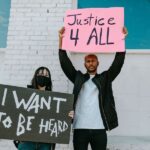The Clinic’s friend-of-the-court brief filed on behalf of eighteen law professors urged the circuit to invalidate the following provisions of the Act that allow all property owners of any kind to sue any person who “exceeds [their] authority to enter the nonpublic areas of another’s premises” by:
(1) capturing information (e.g., photographing or note-taking) and then using it against the interest of the property owner;
(2) recording images or sounds and then using the recording against the interest of the property owner;
(3) recording images or data via an unattended camera or electronic surveillance device; or
(4) any act that “substantially interferes with the ownership or possession of real property.”
While the Fourth Circuit declined to strike down all applications of these four provisions, Senior Circuit Judge Henry Floyd held that “recording in the [property owner]’s nonpublic areas as part of newsgathering constitutes protected speech,” and therefore declared “the Act unconstitutional when applied to bar newsgathering activities PETA wishes to conduct.” Judge Floyd further noted that “[o]ur analysis likely means the same result must follow for most (if not all) who engage in conduct analogous to PETA’s.”
The Fourth Circuit’s decision is a win for PETA and other individuals and organizations whose reporting on issues of public concern — such as labor, animal, and environmental abuses — is dependent on undercover newsgathering.
The amicus brief was written by students Mark L. Bailey and Michael Sloman, and Clinic Director Clare R. Norins, on behalf of the following 18 amici:
- Enrique Armijo, Associate Dean for Academic Affairs and Professor at Elon University’s School of Law
- Jane Bambauer, Professor of Law at the University of Arizona’s James E. Rogers College of Law
- Erwin Chemerinsky, Dean & Professor of Law at the University of California’s Berkeley School of Law
- Alan Chen, Professor of Law at the University of Denver’s Sturm College of Law
- Thomas P. Crocker, Professor of Law at the University of South Carolina School of Law
- Eric M. Fink, Associate Professor of Law at Elon University’s School of Law
- G.S. Hans, Assistant (now Associate) Clinical Professor of Law at Vanderbilt University Law School
- Thomas Kadri, Assistant Professor of Law at the University of Georgia School of Law
- Heidi Kitrosser, Professor of Law at the University of Minnesota Law School
- Gregg P. Leslie, Professor of Practice and Executive Director of the First Amendment Clinic at Arizona State University’s Sandra Day O’Connor College of Law
- Nicole Ligon, Supervising Attorney in the First Amendment Clinic and Lecturing Fellow at Duke Law School
- Sarah Ludington, Clinical Professor of Law and Director of the First Amendment Clinic at Duke Law School
- Gregory P. Magarian, Professor of Law at Washington University in St. Louis School of Law
- Jonathan Peters, Professor of Law & Professor of Journalism and Mass Communication at the University of Georgia’s School of Law and Grady College
- Jeffrey M. Shaman, Professor of Law Emeritus at DePaul University College of Law
- Rodney A. Smolla, Dean & Professor of Law at Widener University’s Delaware Law School
- Joseph Thai, Professor of Law at the University of Oklahoma College of Law
- Sonja R. West, Brumby Distinguished Professor in First Amendment Law at the University of Georgia School of Law


